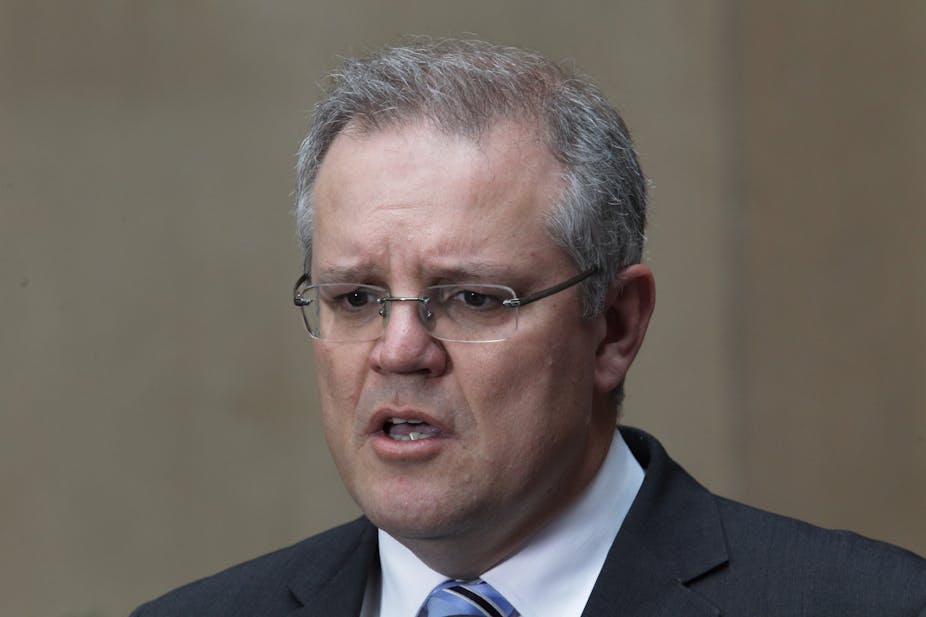Lawyers for the 157 Tamil asylum seekers now transferred to Nauru say that while being held at sea the people were told they would be put into orange lifeboats bound for India.
The Human Rights Law Centre said that in mid-July, after the asylum seekers had been aboard the Oceanic Protector for about a fortnight, nine adults were instructed how to use the lifeboats.
“The clients we have spoken to were terrified at the prospect of being dumped in the ocean on lifeboats,” the centre’s executive director, Hugh de Kretser, said in a statement.
“We have been told that on around Monday 14 July, nine adults and two children were removed from the rest of the 157 in the group. The nine adults were taken to a number of orange lifeboats and told they would be put in them and would need to navigate them to India.
"They were instructed in English how to use the lifeboats. All of them speak Tamil and only one or two spoke a little English. They were told that each boat would have 50-60 people on it,” de Kretser said.
“When they refused, saying they had no experience in operating or navigating a boat and couldn’t take responsibility for ensuring the safety of the people on board, the officers told them it was an Australian government decision and they had to obey.
"The nine adults and two children were then separately detained from the rest of the 157 for four or five days. Each day they were extremely fearful of what was going to happen to them. Then they were taken back into the three main rooms and reunited with the rest of the group. The entire group was then terrified that at any moment they would be dumped in the ocean,” de Kretser said.
He said it was not clear why the government did not proceed with the lifeboat plan.
The 157 people had been “subjected to a level of cruelty and callousness that has no place in modern Australia”, de Kretser said.
The advocates were able to speak to only 15 of the 107 adults.
The centre has been told the majority of the group are Christian, and that they are Sri Lankan Tamils and are fleeing persecution in Sri Lanka, with some of them arriving in India less than six months ago.
“The asylum seekers revealed a precarious existence in India where they were denied basic legal rights including being able to lawfully work, send their children to school or have freedom of movement. India is not a party to the Refugee Convention. Some revealed safety fears in India also.
"We were unable to explore these issues properly with the 15 clients we spoke to and were urgently seeking proper legal access to all 157 asylum seekers in order to advise them on the option of speaking to Indian officials in Australia,” said de Kretser.
The people were detained on the Customs ship between June 29 and July 25.
Immigration Minister Scott Morrison refused to be drawn on whether people were being trained to use the orange lifeboats, saying he did not discuss operational matters.
He said that while the asylum seekers were at the Curtin detention centre they were given the opportunity to speak to Indian consular officials. On July 29 the leaders of the group had access to their lawyers and there was a discussion.
“We’re not privy to what those discussions were. And following those discussions, 157 people coincidentally decided not to take up that offer,” Morrison told the ABC.
Morrison admitted the Indian consular officers were not at the centre at the time.
The asylum seekers were flown to Nauru on Friday night. Morrison said there were only ever two options: the people would return to India or go to Nauru.
He said slightly more than two-thirds of the people had not just come out of Sri Lanka to India. They had been resident in Tamil Nadu. They had been at schools, living there with family. “We had teenagers who were on that ship who were born in India.”
Asked why the children were sent to Nauru when last week evidence was given to the Human Rights Commission inquiry into children in immigration detention that these places were not suitable for children, Morrison said: “Because offshore processing is a universal policy, and when you create exceptions to that, then you create an incentive for children to get on boats.”

